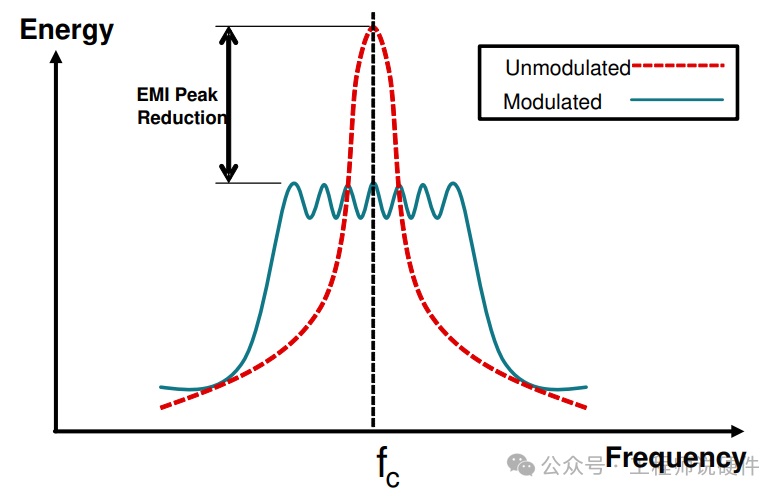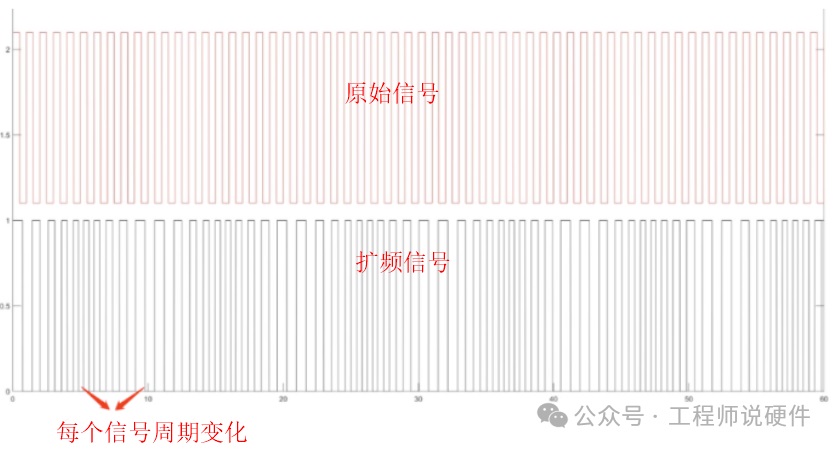Why is spread spectrum clock technology a good way to deal with EMI
Time:2024-05-29
Views:108
Spread Spectrum clock (SSC), full name is Spread Spectrum clock. This technology is mainly used to reduce EMI generated by switching signals such as digital clocks, and is common in modules such as clock generation and switching controllers.
The basic principle of spread spectrum is converting the original narrowband signal into a broadband signal, as shown in the following spectrum diagram, The energy on the original single frequency is dispersed, avoiding the EMI of a large single frequency.


From the perspective of the time domain, it is to fine-tune the signal of the original single clock cycle up and down. For example, each clock cycle is gradually added up to n cycles with a fixed offset, and then gradually reduced by n cycles with the same offset. This ensures that the total number of clock cycles is constant over a period of time, but the local clock cycles are always changing.
As shown in the following figure, corresponding to the frequency domain, is to convert a single frequency signal to a broadband signal. The average energy of a single frequency signal is reduced as the period is shorter.


At present, spread spectrum technology is widely used in PCIE, USB3.0, DP and other high-speed serial buses, and in some switch control applications, such as DC-DC power supply, Class D power amplifier and so on. In the follow-up EMI debugging, you can also confirm whether the spread spectrum technology is supported, perhaps after enabling, your interference problem can be solved.
However, it should be noted that after SSC is enabled, the signal jitter will be increased, and in the application of high-speed serial bus, the bit error rate may be increased. So be sure to verify it comprehensively.
|
Disclaimer: This article is transferred from other platforms and does not represent the views and positions of this site. If there is any infringement or objection, please contact us to delete it. thank you! |











